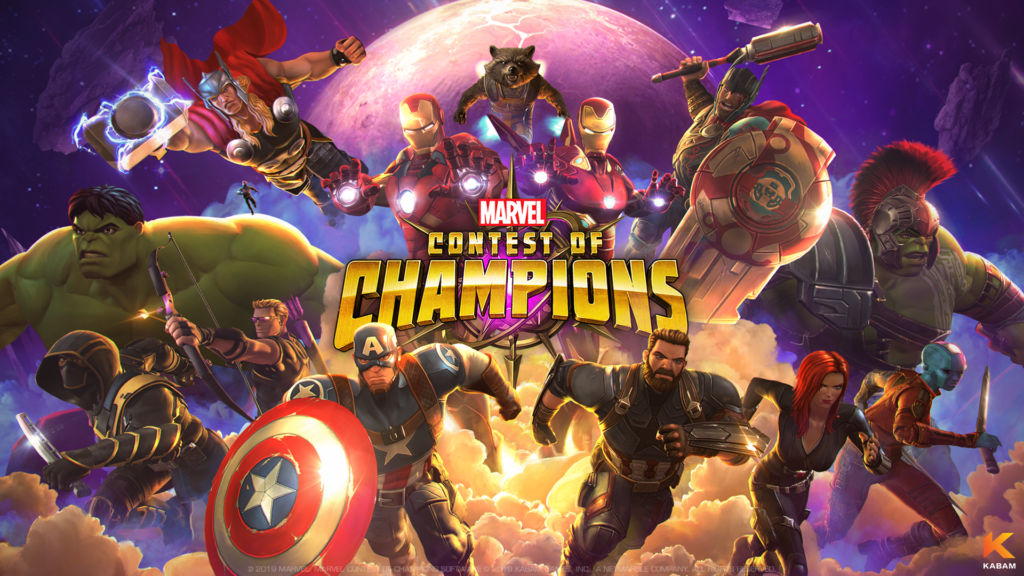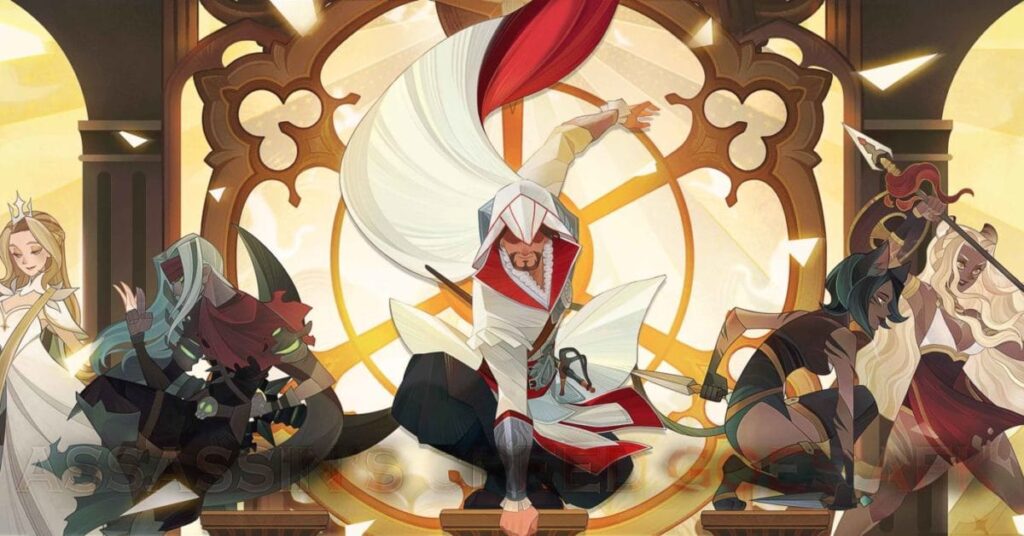· 10 min read
Part 1: The Pros and Cons of Using a licensed IP

Sarah Impey
Content Creator at GameAnalytics
There are a lot of reasons to use a licensed IP. You could have made a game and now want to reskin and update it to reach a new audience, like Reigns: Game of Thrones or the new Angry Birds: Star Wars. You might be making a music game and need the rights to use a few songs, like Guitar Hero. Or perhaps you just want to include a single character in your brawler, like Super Smash Bros.
Whenever you’re using another creator’s content, you’ll need permission. A license. But what are the pros and cons of doing that? Does it really help? The short answer is: maybe. But it’s a lot of work.
We can’t get into all the nitty-gritty here, but we can cover the basics and give you a few tips to make sure you don’t fall into any traps.
First, what is intellectual property?
It’s the group of rights that protect abstract creations. For example, patents are a way to stop people stealing inventions. (And make sure the actual inventor gets paid.)
There are other kinds of inventions, though. Stories. Music. Characters. Code. And when it comes to art and fiction, there are two rights that really matter: copyright and trademarks.
Copyright protects your creative work
Creative work covers everything from a piece of music to a computer game. But it’s worth noting that it protects that specific creation, not the idea. The idea of a young child going to wizard school and fighting an evildoer isn’t copyrighted. Harry Potter is copyrighted.
The lines between where an idea stops and a creative work start are a bit blurry. Ultimately, it’s worth remembering the spirit of the law: the original inventor should get paid. But there are three important things to note:
- You automatically have copyright – You don’t pay to copyright something. (You might pay to prove you hold copyright by sending your creative work to a third party.)
- Characters are usually considered under copyright – So you can’t add Peter Pan into your game without permission. (He’s an original invention.)
- Copyright eventually runs out – After that point, it’s in the public domain. That’s why anybody and their auntie can share, print or write about Dracula. It’s public. Nobody alive deserves that money anymore.
The best example of the blurry line is with Thor. As a Norse god, he’s in the public domain. Nobody owns Thor. The inventor is long forgotten. Who would we even pay? So it’s perfectly fair for Neil Gaiman to have Thor crop up in American Gods, for example.
But what about Marvel’s Thor? Well, yes. He’s protected. But that Thor is different. For starters, he’s a superhero. But he’s also his own distinct character, with his own style and personality. You can’t plonk that version in your game without permission. Marvel deserves to be paid. (It’d be bringing you in a lot of fans, for one.)

Trademarks protect specific words, phrases, and symbols
You can apply for a trademark, as long as it’s distinctive enough. This is usually for names, but it might be a logo or even a scent. For example, DC Comics owns the trademark for Batman.
This is what stops you setting your game in the Star Wars universe. Even if you didn’t use any of the characters, never referred to them, and wrote an entirely new story. It couldn’t be in that universe, because you’d never be able to use the name: Star Wars. So how would anybody know?
Often this is actually the most important thing for you as a developer. Sure, it’d be great to be able to use specific characters. But really, you want the name. The brand. That’s what will bring in more players.
You’ll need a license to use someone’s IP
That just means you’ll pay them. The UK Intellectual Property Office (IPO) explains about the 25% rule. This is a rule of thumb, and is usually for patents. A good number to bear in mind, and you’ll probably hear it in negotiations, but the IPO goes on to say that it’s more likely to be between 10% to 15% for a trademark license. (Which is more likely for you.)
It’s worth noting that it could get as low as 5%, though.
“In many sectors, the average royalty rate based on net sales turns out to be in the region of 5%. This is an average and the figures which underlie it vary widely,” the IPO adds. “All rules of thumb ignore important factors such as the investment needed, the risks involved and the circumstances of the parties. Any rule of thumb should be no more than a starting point.”
The big takeaway is that it really depends on how much you think you’ll be making per game.
“In sectors where profit margins are usually high (e.g. the software industry), the royalty rate will be correspondingly high; where profit margins are traditionally low, royalty rates will also below.”
So if you’re making a hyper-casual puzzle game, with very small profit margins, your rate could below. But if you’re making a huge, open-world RPG it’ll probably be much higher.
Pros: Why would I use an IP?
There are a lot of advantages to using someone else’s IP. It’ll help you sell more games, for starters. But there are a few other reasons you might want to get another IP involved.
Save yourself time
It can take a lot of time, effort, and money to develop entire universes, create assets, or produce music. Using an IP skips this and means you can focus more on other areas of your game that might need your expertise.
This is especially important for more casual games, where you want to turn around a prototype quickly, before anybody else fills the niche. An IP can speed this up and make sure you hit the market early.
Keep your game alive
Your game is live and you’ve got a regular battle pass. But how do you keep the content fresh and interesting? Well, new characters, new skins, new missions. This is one of the most useful ways of keeping players active on your game, but also for attracting lots of different audiences to your game.
Take AFK Arena, which just added Ezio from Assassin’s Creed. That’s bound to entice a few players to try it out. Or you can do something similar to Dead by Daylight and release new playable characters, with new mechanics, as downloaded content.
Adding an existing IP to your game can help expand the breadth of your game, especially if you add in multiple different franchises, like the Mortal Kombat series.

Give yourself some prestige
People are naturally going to want to prefer the familiar. We’ve all had those moments where we’ll choose something we know over something new, because we feel safer. It’s the same when choosing a game on the app store. You’ll be naturally drawn to features you recognize, whether that’s the music, a celebrity, or a name.
But having a big name behind you doesn’t just attract the players who enjoy it. It also gives you credibility with those who’ve just heard of it. Players are likely to think: “Well, it must be reasonably good. Otherwise, so-and-so wouldn’t have associated with it.”
That thought can help push them over from just ignoring your ad to actually clicking.
Cut through the noise
With so many games coming out, it can be hard to stand out. Using an existing IP can really help you stand out among the rest. A popular IP almost guarantees that somebody will download and pay for the game. For example, if you used Mario characters, you’re definitely going to get a few diehard Mario fans.
But you’re also going to catch the eye of anybody just idly scrolling down the app store. Your game is going to get noticed over the one with a generic name just above it.
Cons: Why wouldn’t I use an IP?
Sadly, it’s not all good news. There are a few problems when using someone else’s IP.
You’ll still have marketing costs
Yes, you’ll get more clicks on your ads. You’re more likely to get players downloading your game. But you still need to advertise. And the bigger the IP you team up with, the less help you’re going to get.
It’s not the holy grail, and you’re still going to need to do a lot of marketing to make sure people download your game. Make sure you budget the same whether you use an IP or not. The difference is in the ratio: how many people actually click those ads.
And don’t rely on the IP holder’s followers. These rarely turn into downloads. Even if you’re lucky enough to get posted on their social media, you’ll probably get buried among all the other posts they’re doing.
You won’t magic downloads out of thin air
While we said earlier that you’ll have automatic fans. Those fans still need to find out about you. And it’s very unlikely that they’ll accidentally stumble on your game. Remember: they’re not searching for popular IP mobile game. They’re just searching for the IP and that’s going to turn up the main thing, not you.
Your advertising spend will need to be the same, whether you use an IP or not. (Although, you might be able to get some of your marketing costs reimbursed by the IP holder. Usually.)
You might end up in a saturated market
Before you approach a franchise, do a quick search on the app store. For example, look up Game of Thrones or Star Wars. How many other games are there? Dozens, usually.
And how many of those are like your game? When everybody has the same idea, nobody stands out.
They won’t understand the industry
Most of the time, you won’t be working with an IP from the gaming industry. You’ll be working with people that don’t understand the timescales. The crunch. Or even what an engine is. This can cause friction
if they make unreasonable demands. Make sure you explain things early and don’t assume they know. It could cause problems down the line.
Keep in the loop
This is the first part of our IP article series. And our next article is up and ready. But make sure to sign up to our newsletter today so you don’t miss any new updates 👇